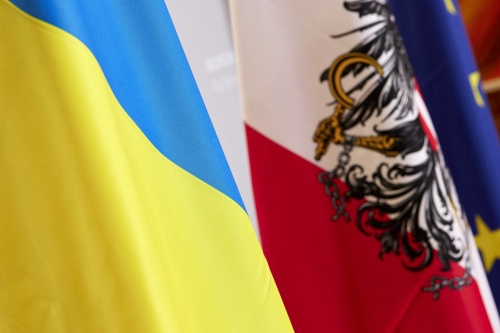Sponsored Content
Ukrainian Refugees in Austria Feel Welcome
Displaced women from Ukraine were interviewed by the Austrian Institute for Family Research at the University of Vienna on behalf of the Austrian Integration Fund about their current life situation, security and care, and plans for the future.
 The Austrian Institute for Family Research at the University of Vienna interviewed displaced women from Ukraine about their current situation in Austria. / Picture: © Thomas Topf / © Parlamentsdirektion
The Austrian Institute for Family Research at the University of Vienna interviewed displaced women from Ukraine about their current situation in Austria. / Picture: © Thomas Topf / © Parlamentsdirektion
To collect scientifical knowledge on the living situation of displaced persons of Ukrainian descent in Austria in a structured way, the Austrian Integration Fund (AIF) and the Federal Ministry of the Interior (BMI) are cooperating in the collection of data. Further surveys on the situation of Ukrainians in Austria are ongoing. Therefore, the Austrian Institute for Family Research at…
or Log In
Fast News Search





